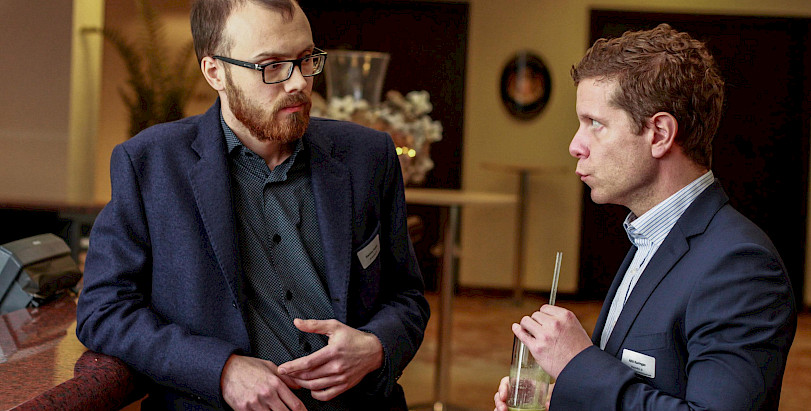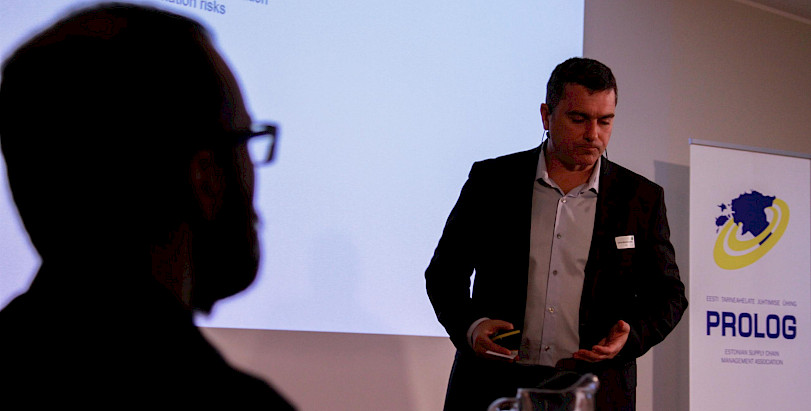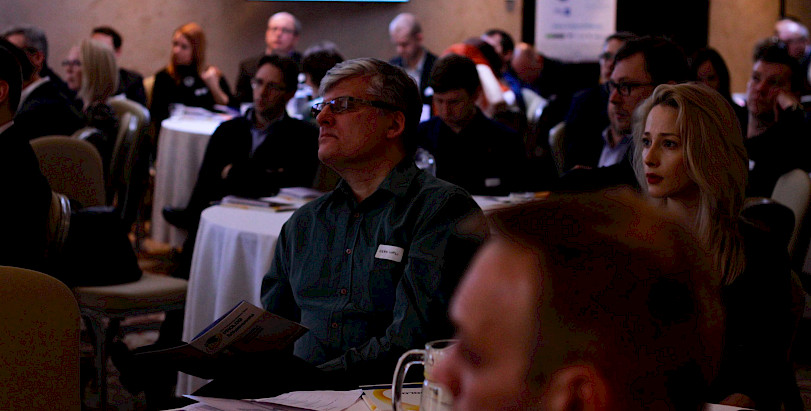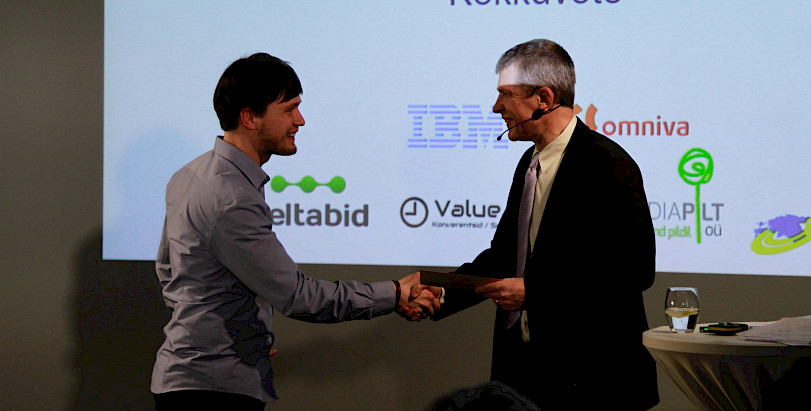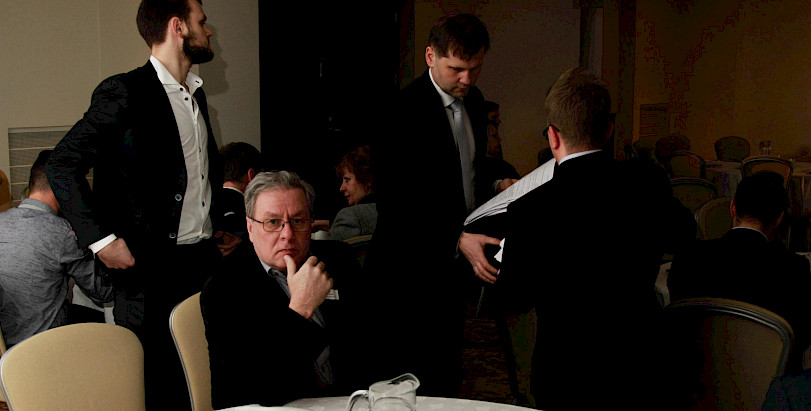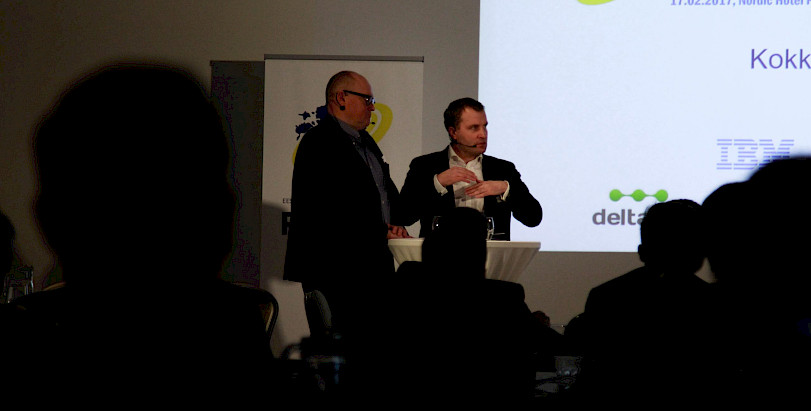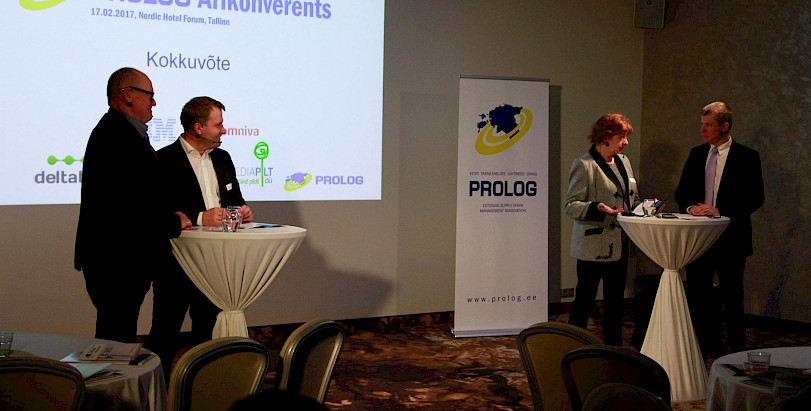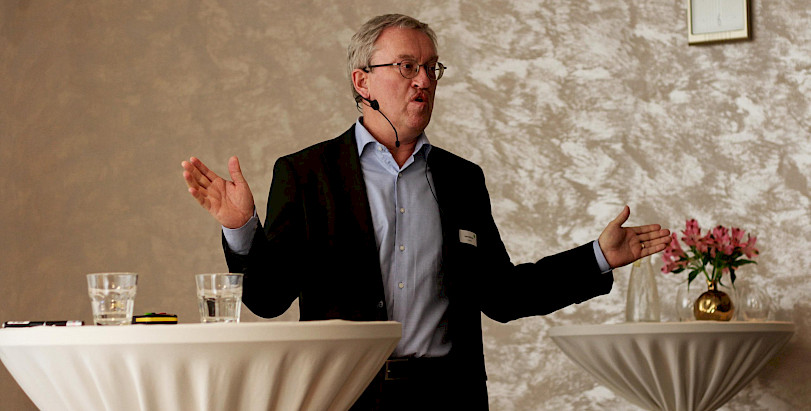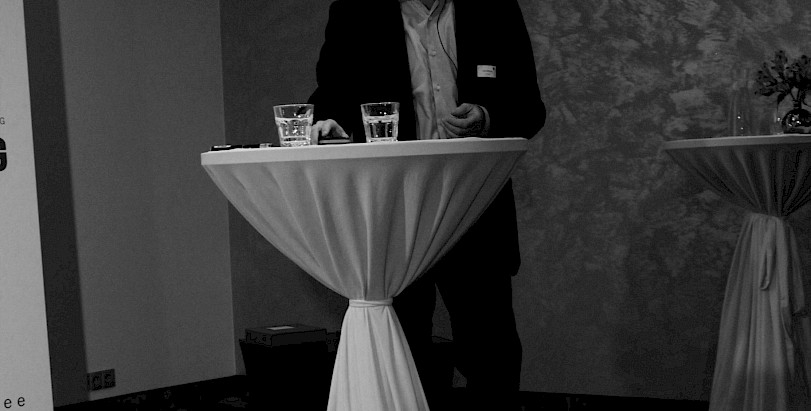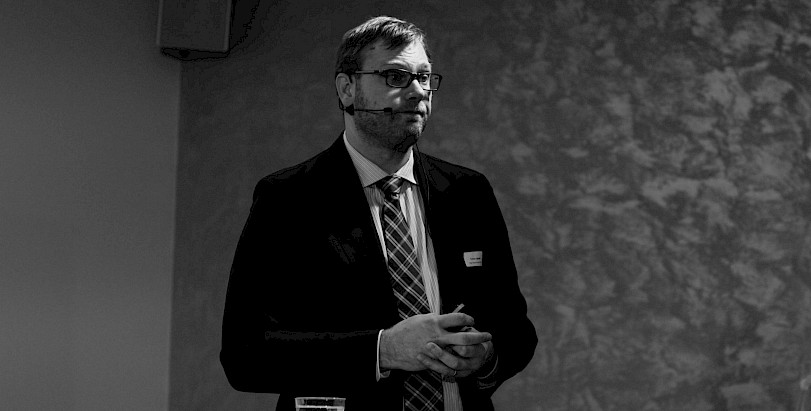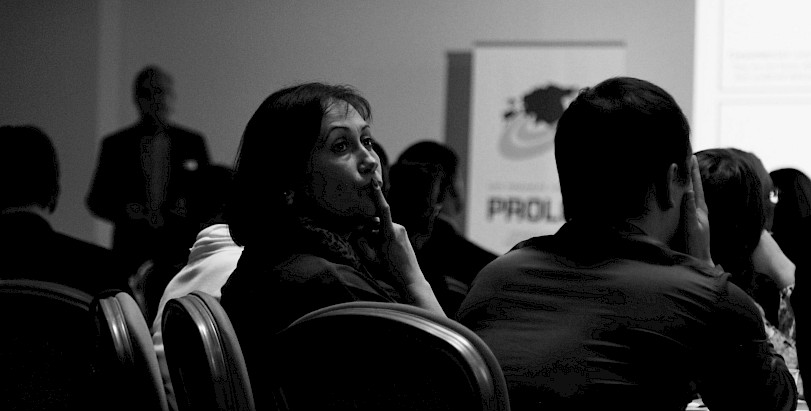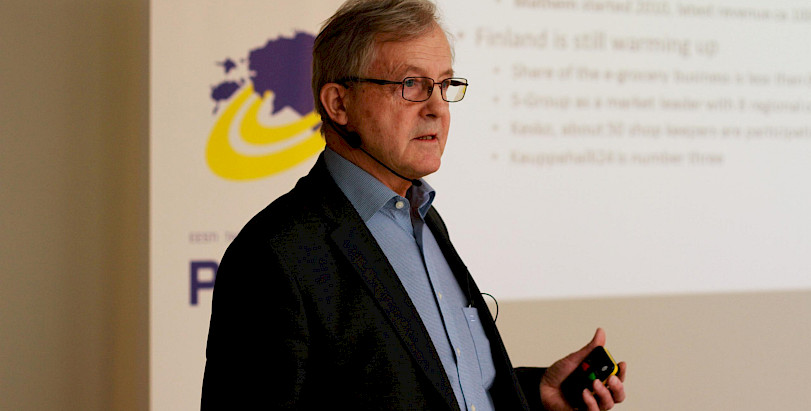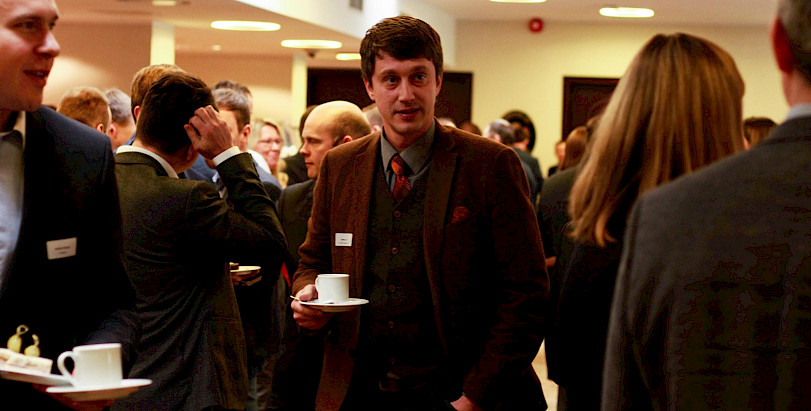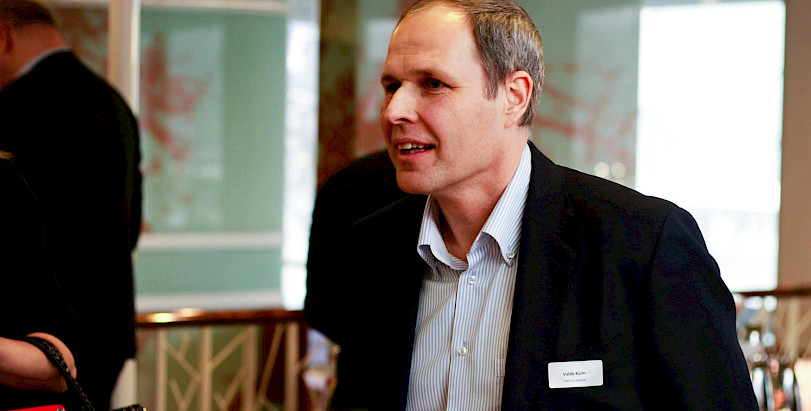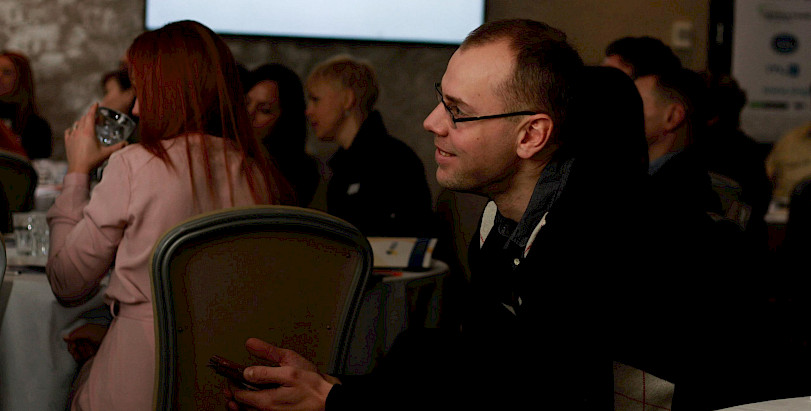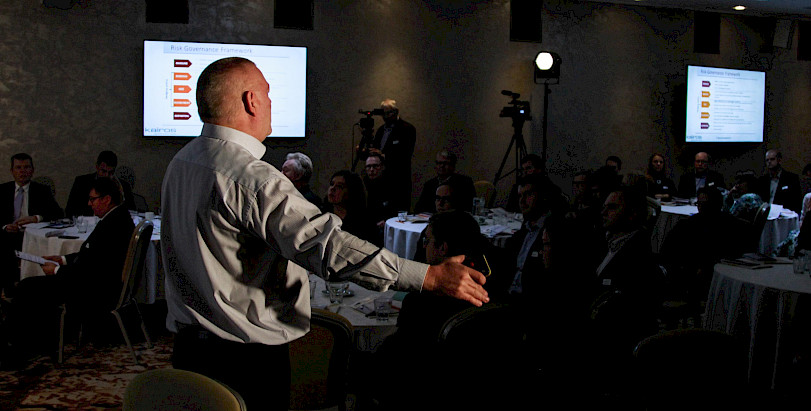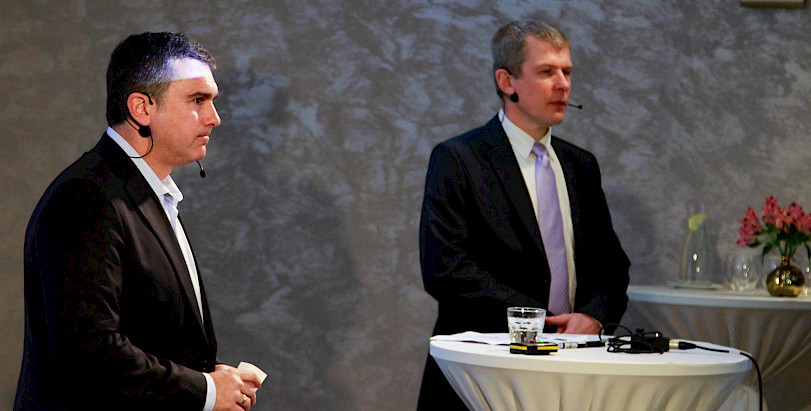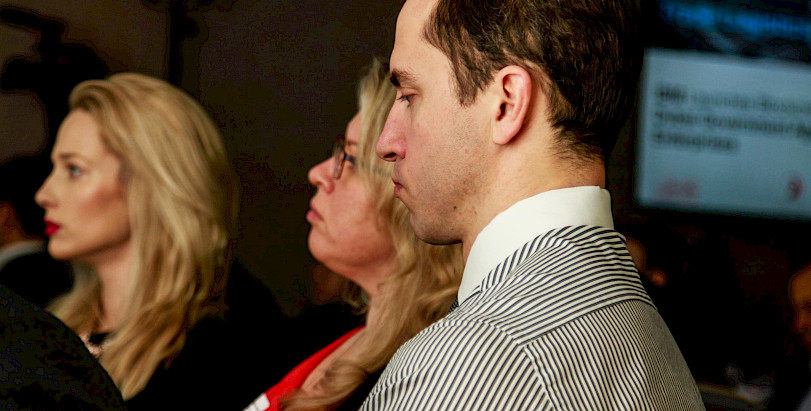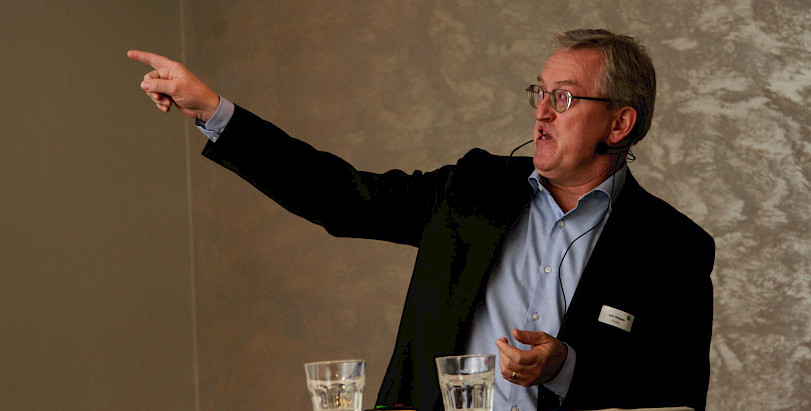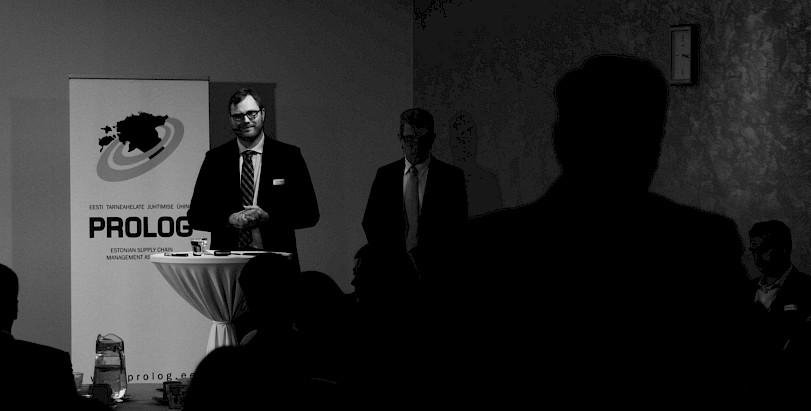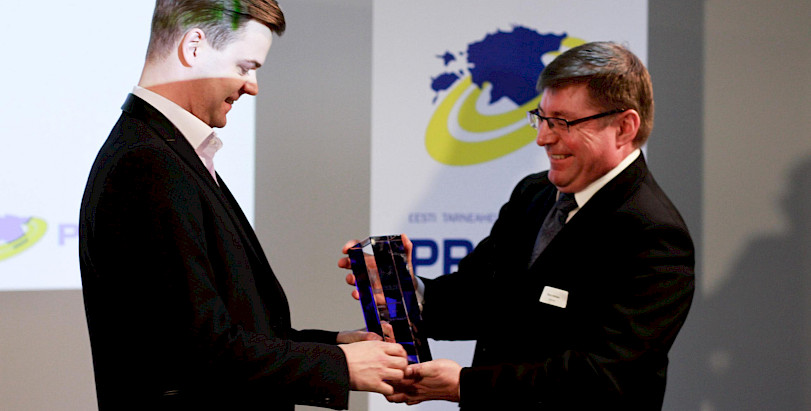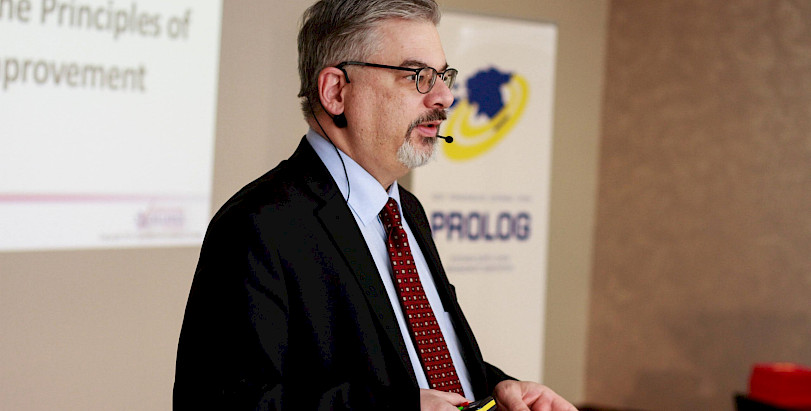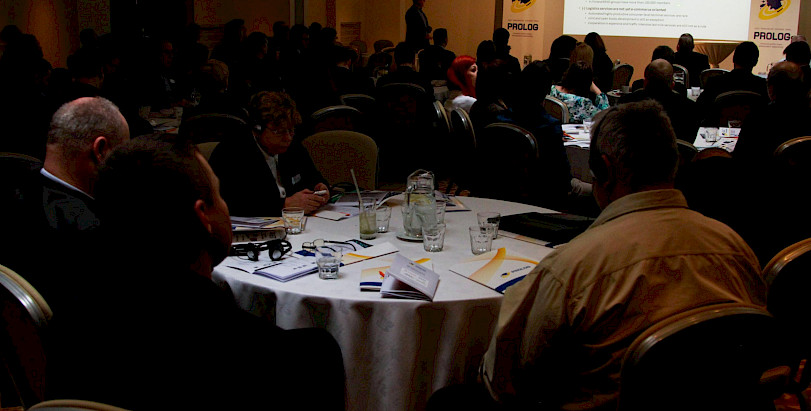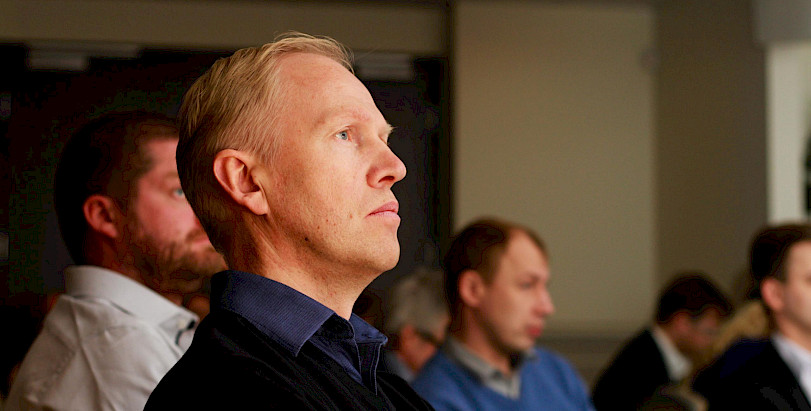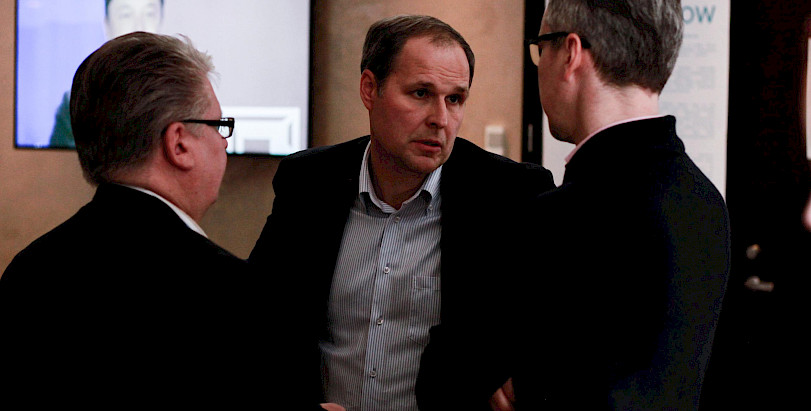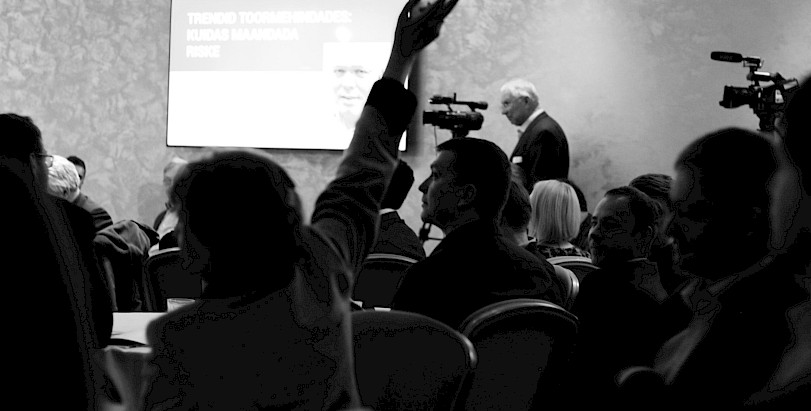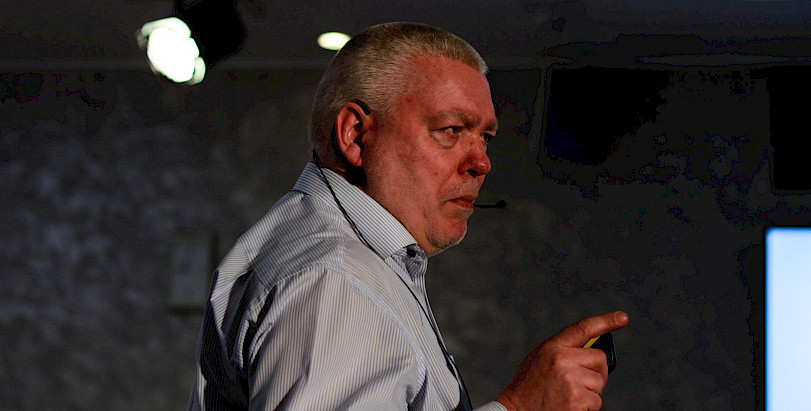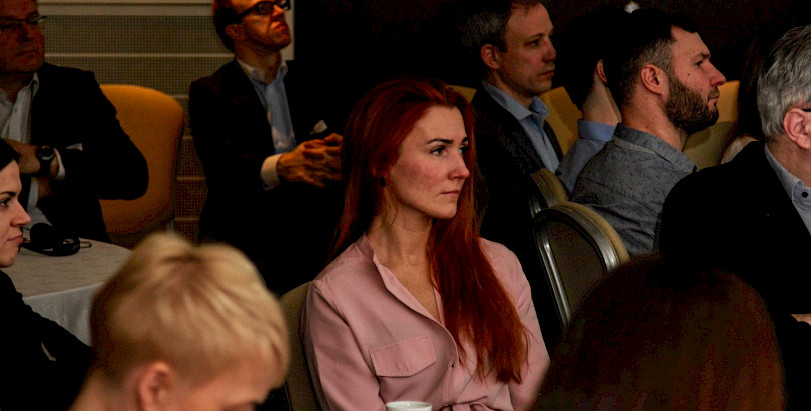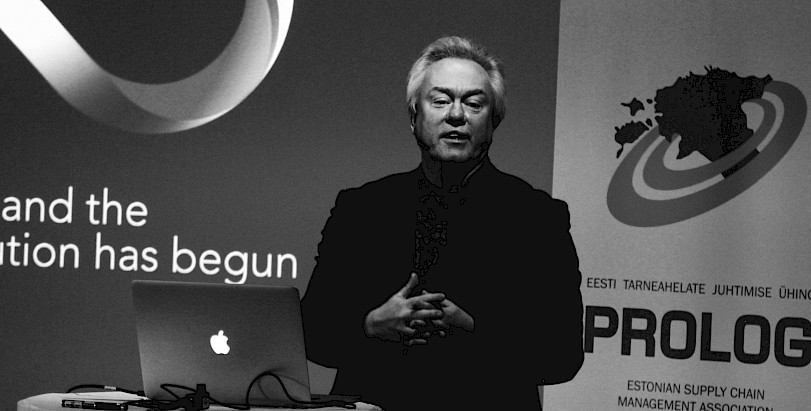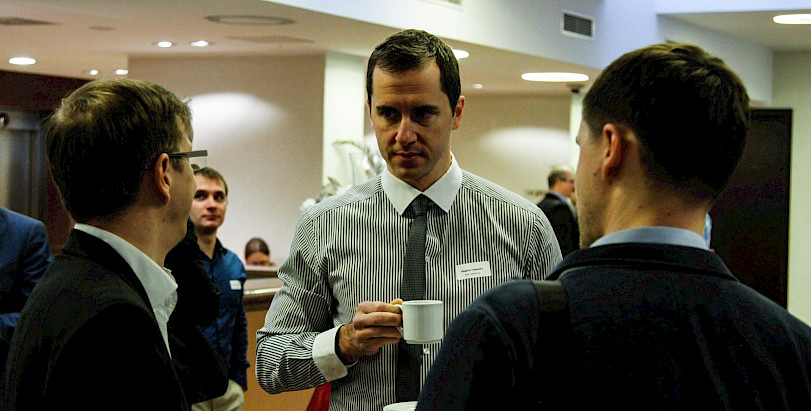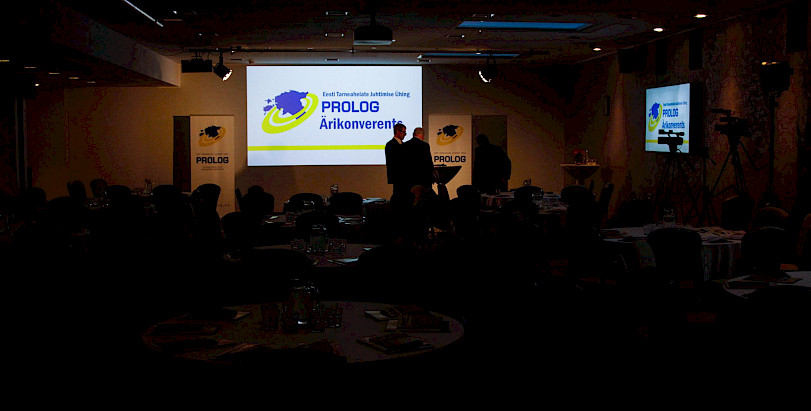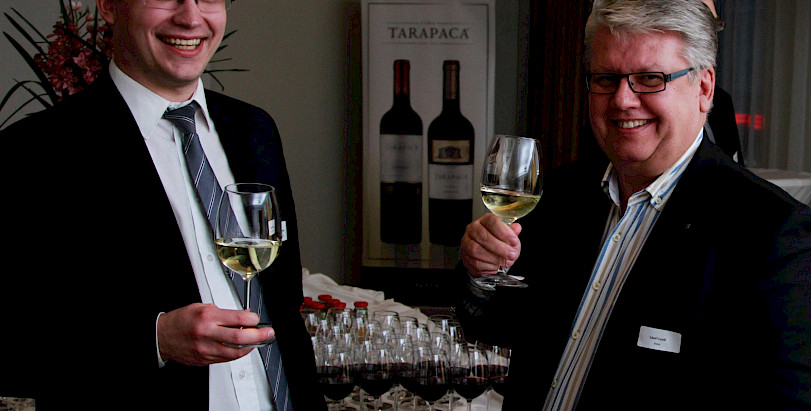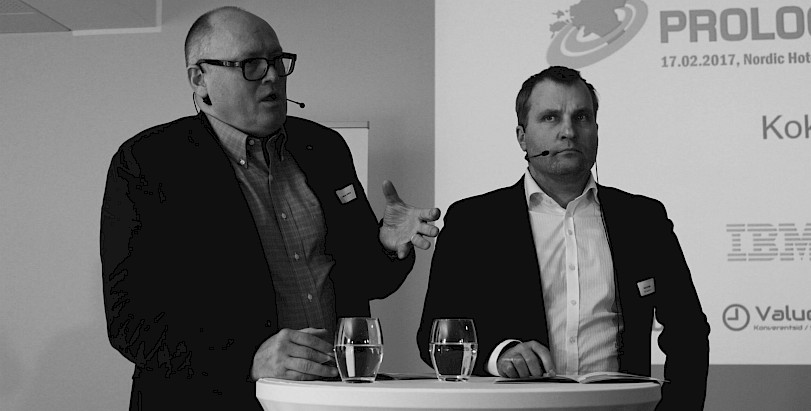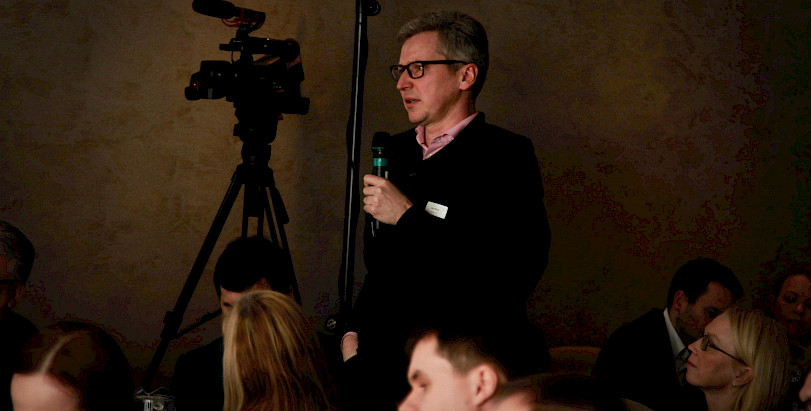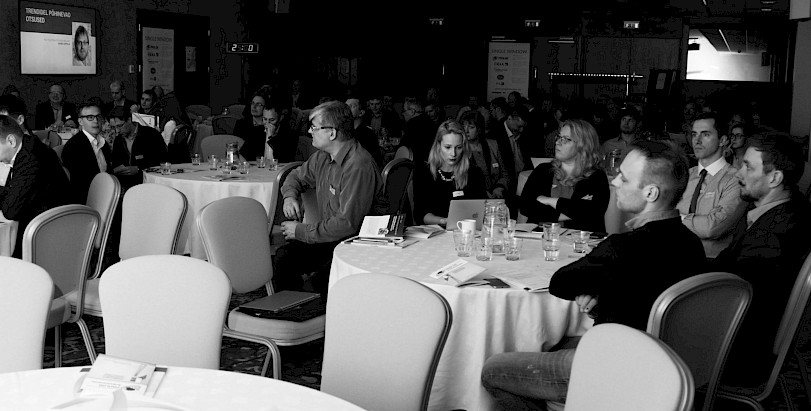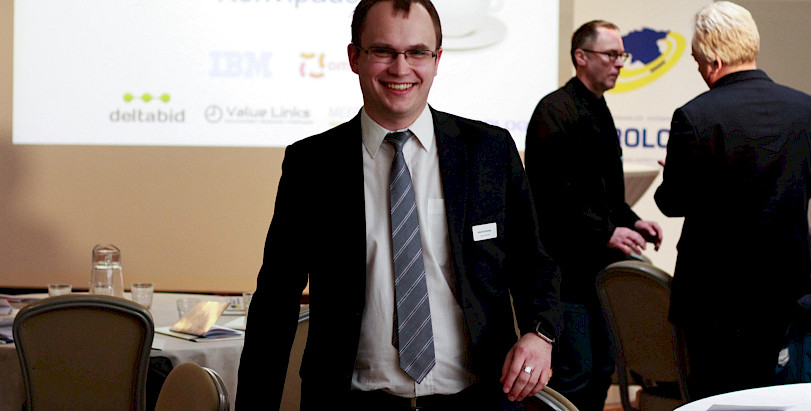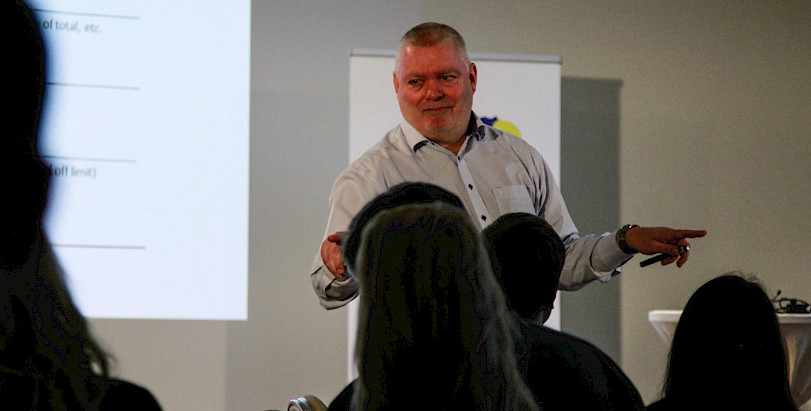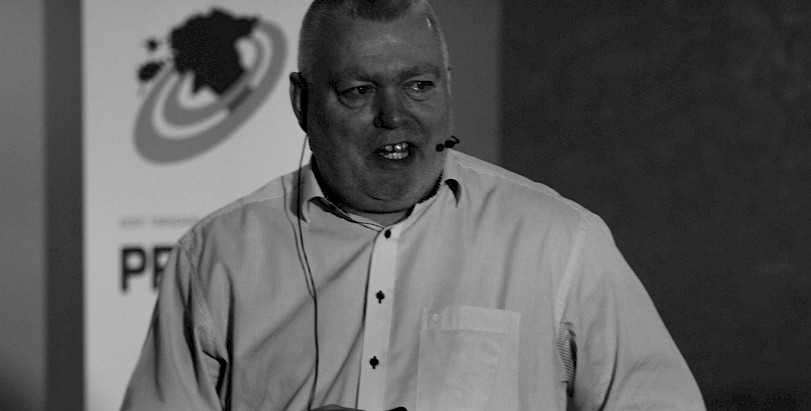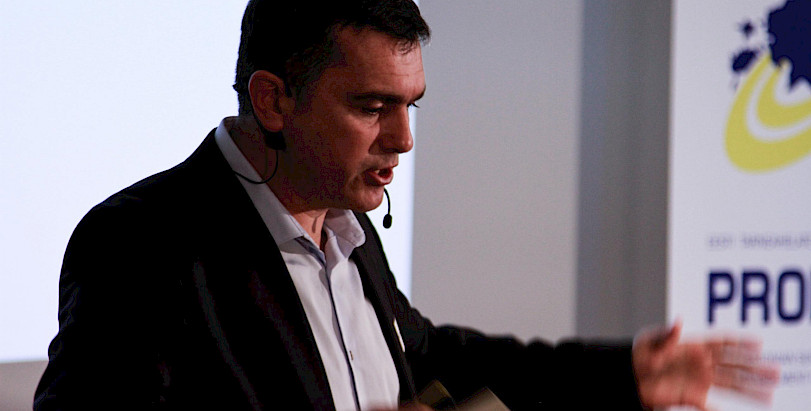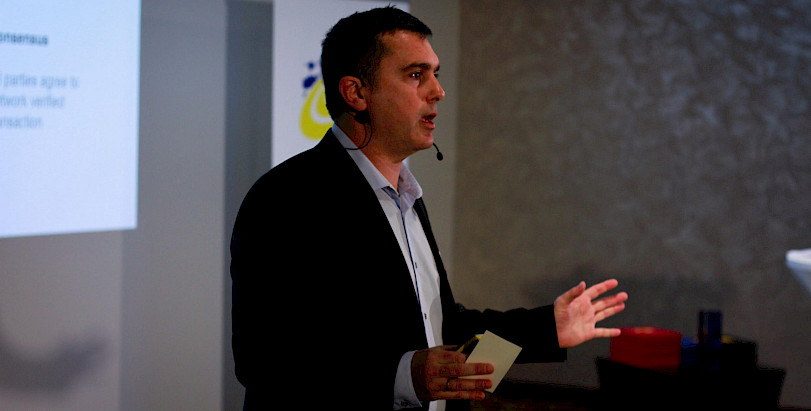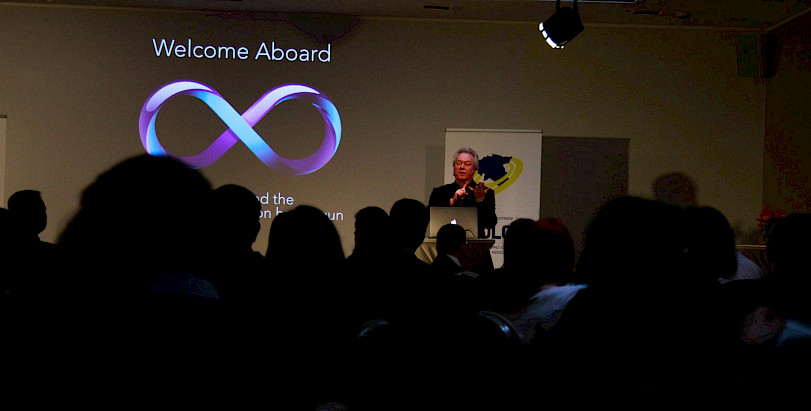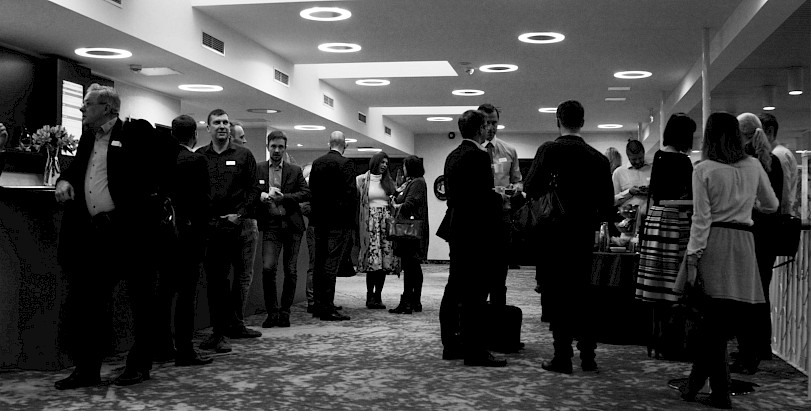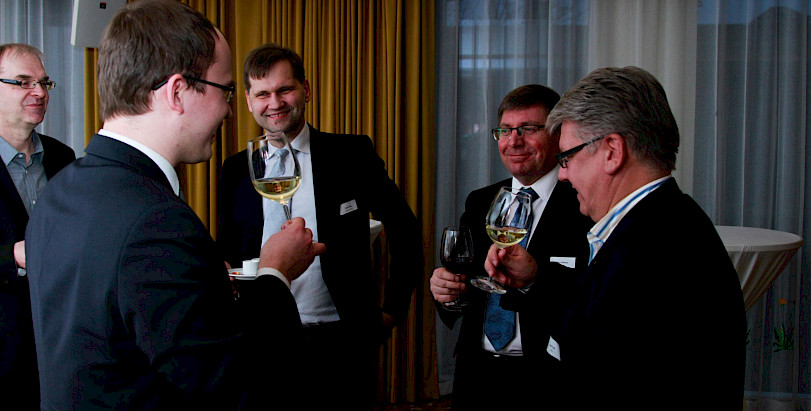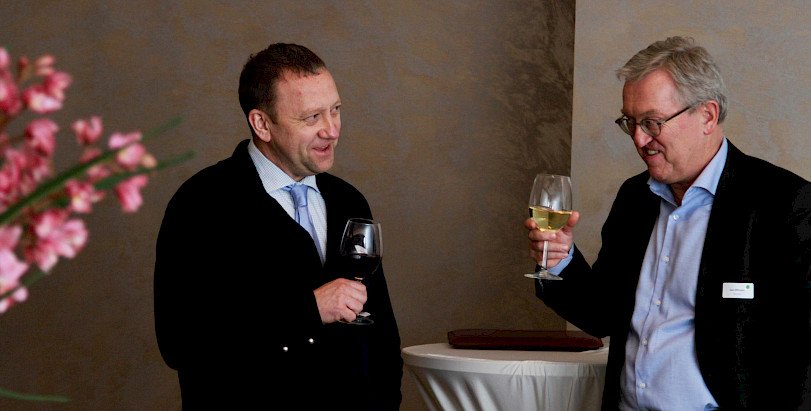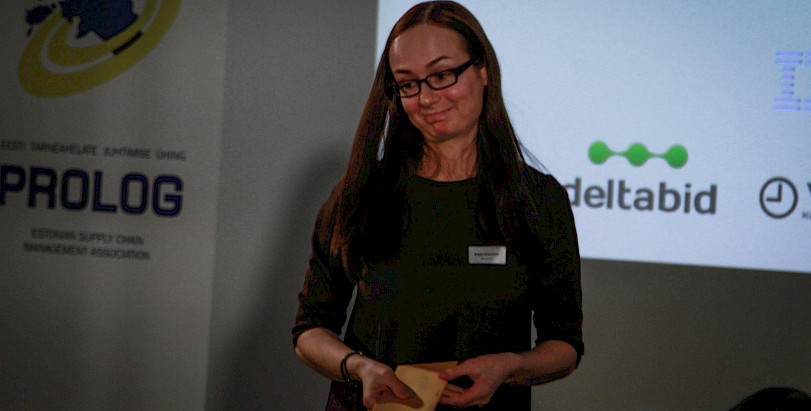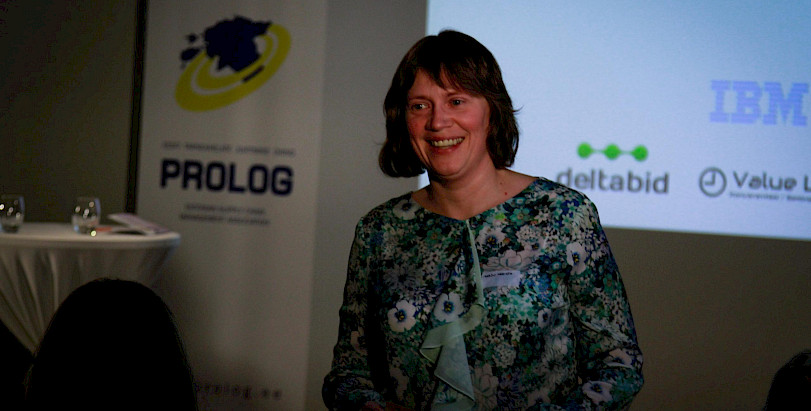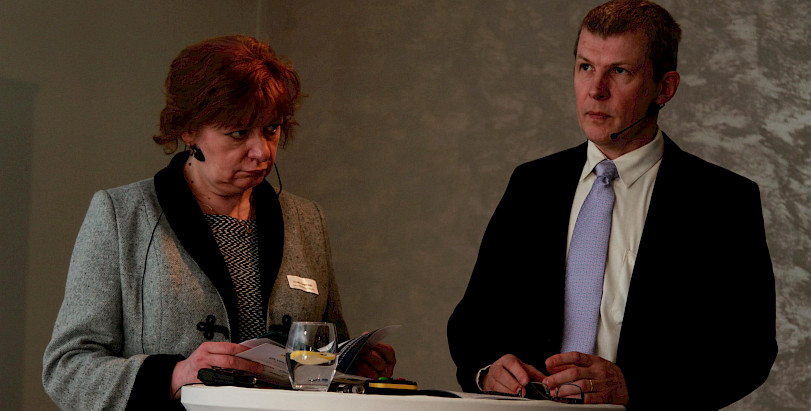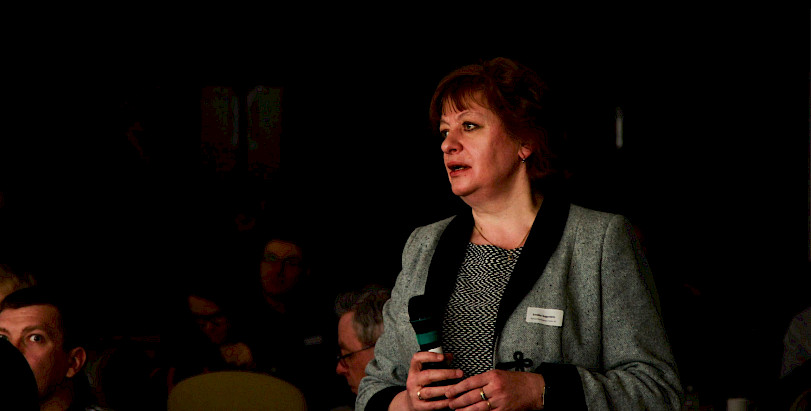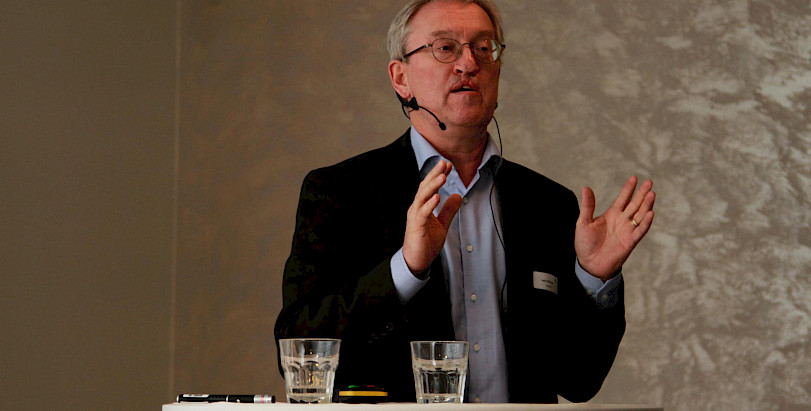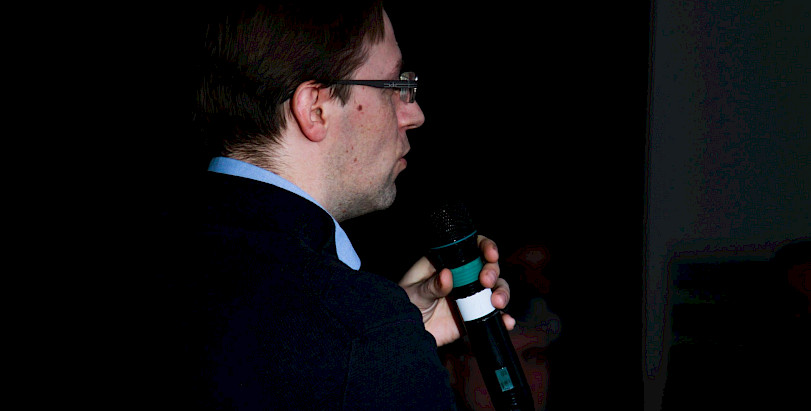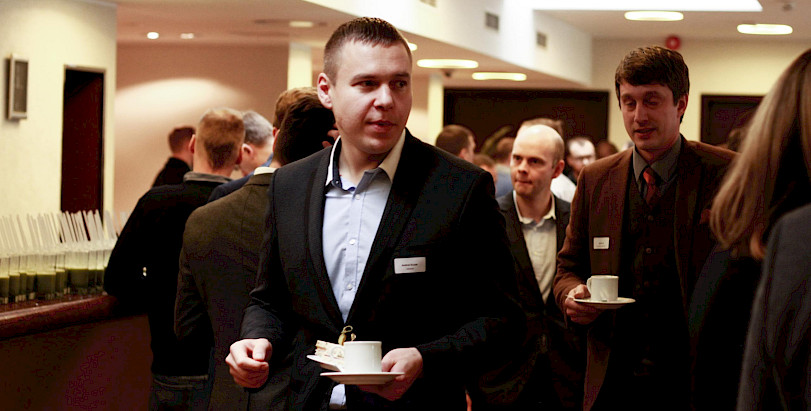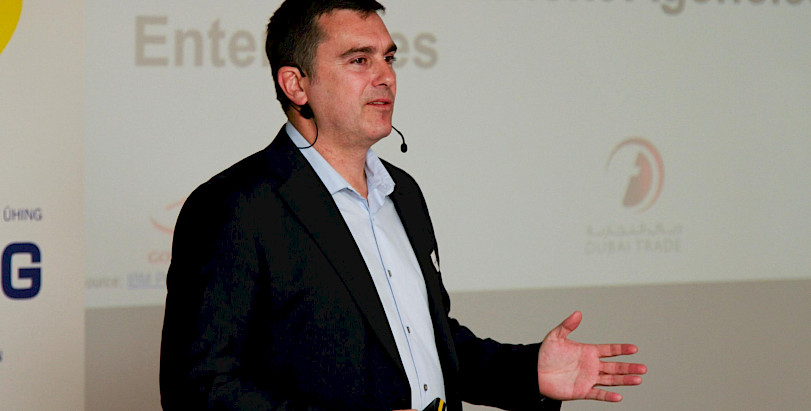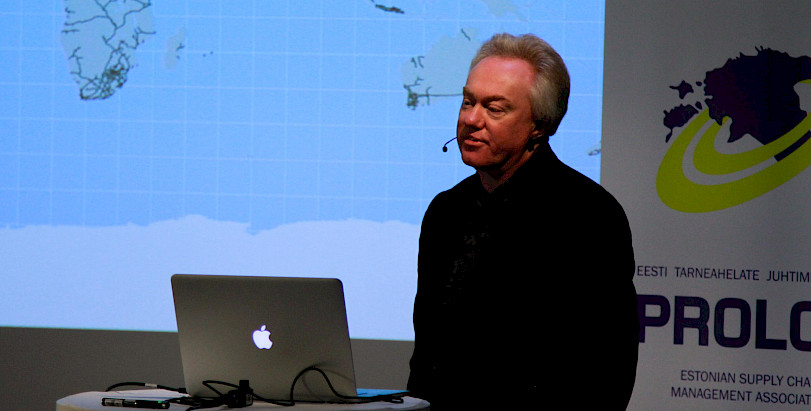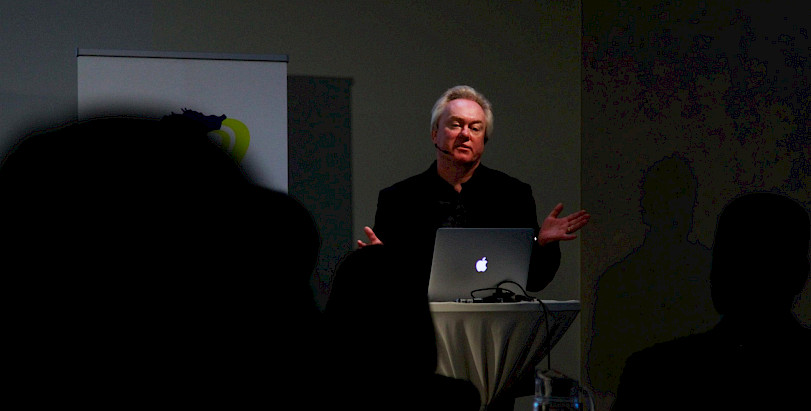- Archive
- PROLOG Business Conference 2017
PROLOG Business Conference 2017
17. february 2, at Nordic Hotel Forum, Viru väljak 3, Tallinn, Estonia
The overarching theme of the PROLOG Business Conference is the untapped potential of the supply chain in management, processes and collaboration. Through the testimonials of international and local speakers, the opportunities in supply chains will be explored. Speakers will include current and former executives from internationally renowned companies, as well as top professionals from our large enterprises.
SITEGROUP
Top executives - owners, board members, CEOs - of industrial, logistics and commercial companies. Along with the top management, decision makers in the supply chain, purchasing, procurement and logistics of the company are particularly welcome to the conference.
ADDRESS BY THE PROGRAMME MANAGER
We invite you to the PROLOG Business Conference where we will present world trends, best practices and networking opportunities. The Estonian Supply Chain Management Association PROLOG is starting a new tradition by organising its first PROLOG Business Conference.
Why are we doing this?
The Business Conference will support PROLOG's main mission: to increase the competitiveness of Estonian companies, and through them the Estonian economy as a whole, through the dissemination of supply chain management expertise and best practices.
Why a business conference?
PROLOG's vision is to be a forum where top managers and professionals from the supply chain, purchasing and logistics management sectors meet.
It is a forum where supply chain experts can showcase their ideas and value to business leaders. It is also a place where a business leader can be proud of the achievements of his or her supply chain manager. I believe that the potential and awareness of supply chain management still needs to be increased. We will try to unlock the potential of supply chains through stories from international and local speakers.
Our speakers will include current and former managers of internationally renowned companies, as well as top professionals from our large companies.
See you at the PROLOG Business Conference to share best practices in supply chain management.
<a data-cke-saved-href="http://prolog.ee/aastakonverents/wp-content/uploads/2016/12/Tomingas_Peep_P_Väike-e1482073106348.jpg" href="http://prolog.ee/aastakonverents/wp-content/uploads/2016/12/Tomingas_Peep_P_Väike-e1482073106348.jpg" data-cke-widget-data="{"hasCaption":false, "src": "http://prolog.ee/aastakonverents/wp-content/uploads/2016/12/Tomingas_Peep_P_V%C3%A4ike-e1482073106348-150x150.jpg","alt":"","width":"150","height":"150","lock":true,"align":"none","link":{"type":"url","url":{"protocol":"http://","url":"prolog.ee/aastakonverents/wp-content/uploads/2016/12/Tomingas_Peep_P_V%C3%A4ike-e1482073106348.jpg"}, "advanced":{"advCSSClasses":""}}, "classes":null}" data-cke-widget-upcasted="1" data-cke-widget-keep-attr="0" data-widget="image" class="cke_widget_element">
Peep Tomingas
Estonian Supply Chain Management Association PROLOG CEO and Conference Programme Manager
PROLOG Business Conference 08.02.2017 / Nordic Hotel Forum
Tõnis Hintsov, Chairman of the PROLOG Board, and Peep Tomingas, CEO of PROLOG

Tõnis Hintsov has worked as a logistics service provider in senior positions at Schenker, Kaubaekspress and Trans World Shipping.
He is currently the Dean of the Faculty of Transport at Tallinn University of Technology and is a founding member of the Estonian Supply Chain Management Association PROLOG and since 2011 also the Chairman of the PROLOG Board. Tõnis's main areas of expertise are logistics management, transport and distribution logistics, process development, logistics outsourcing, activity-based costing in logistics and transport information systems.

Peep Tomingas started his supply chain management career in 1997 as logistics manager at Ericsson Eesti AS. From 2002 until August 2015, he worked for ABB as Supply Chain Manager for the Baltics.
Peep is currently a private entrepreneur consulting companies on supply chain management. Peep is also CEO of PROLOG, the Estonian Supply Chain Management Association. Peeb's main areas of expertise are supply chain management, strategic sourcing and supplier relationship management.
Hyperloop is a new technology that allows people and goods to be transported at the speed of air travel but at the price of a bus ticket. Hyperloop One is one of the companies aiming to be the first to create a commercial Hyperloop transport system. They are moving ahead faster than you might think: the engine needed to move the Hyperloop capsule was tested in May 2016, and in early 2017 the entire Hyperloop system will be tested in the Nevada desert. The aim is to have Hyperloop moving goods by 2020 and passengers by 2021. The first contract for a Hyperloop transport link has also been signed. It is to be completed in the United Arab Emirates and cover the 159 kilometres between Dubai and Abu Dhabi in 12 minutes.
But Hyperloop developments are also taking place closer to home. Funding is being sought to build a Hyperloop link between Helsinki and Stockholm. It would take an hour to cover the distance by plane (plus waiting time at the airport). Hyperloop would reduce the journey time to 28 minutes.
The world is about to get a new means of transport. Hyperloop One Vice President, Dr Alan James, will be at the conference to talk about how Hyperloop will change the way goods are transported and people move, and what developments are underway globally and in our region to change the world.

The Hyperloop is a new transport network that will move passengers and goods at speeds of up to 300 metres per second (1080 km/h), and will significantly boost the competitiveness of the economy.
Alan James joined Hyperloop One in 2015 as Vice President of Global Business Development. He is the company's primary point of contact for cities, regions and countries in the development of Hyperloop transport solutions. In Europe, Alan is leading negotiations with the European Union and governments in member states where Hyperloop transport networks are planned.
Prior to his current role, Alan led the delivery of multi-billion pound infrastructure projects. As Project Manager for HS2 The Stoke Route, he led a team of industry specialists whose business model reduced investment costs by £5 billion and enabled the service to be launched 7 years ahead of schedule, giving the City of Stoke a high-speed rail link. As Project Manager for the UK Ultraspeed Maglev project, he liaised with the UK Government at the highest level.
Using his expertise in conventional high-speed and maglev trains, Alan has consulted on a variety of high-speed rail projects in the USA, Australia, the Arabian Peninsula and Asia. He has consulted on a major high-tech investment project in Africa for various FTSE250 clients and has also been a strategic advisor to the UK Government's Foreign Office.
Blockchain is a technology that can significantly save time and reduce costs by automating data exchange processes. Security is at a whole new level, making it impossible to manipulate data undetected. This means that Blockchain brings transparency to the supply chain. Jaime Marijuán Castro from IBM talks about how Blockchain is changing the quality of supply chain management. IBM is the world's leading developer of Blockchain and Artificial Intelligence.
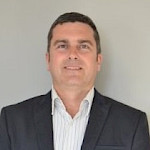
Jaime Marijuán Castro is a senior consultant in the electronics industry with hands-on experience in supply chain management.
His more than 16 years of experience comes from supply chain management and order processing, manufacturing, distribution, inventory management, demand and supply project execution. He has been involved in the development of several IBM Mobile First iOS applications, which has also made him an expert in IT mobile solutions. At the conference, Castro will talk about Blockchain, having worked on supply chain development projects using this technology.
Commodity markets are highly volatile and affect virtually all businesses. At the same time, many companies do not have a strategy to manage this important risk. They have simply taken the role of victim and blame poor financial performance on the situation in the commodity markets.
The easiest way to hedge against fluctuations in commodity prices is to agree with the customer that if commodity prices change, the price of output will change, i.e. the selling price of output will be indexed to commodity prices. However, if the customer does not agree to indexation, other solutions must be found to hedge the risks. One way is to fix the purchase prices for the future. Sören Vammen discusses how to analyse the commodity market, the consequences of poor risk management in the commodity market and how to manage risk - how to insure against adverse commodity trends.

Kairos Commodities on kaubariskide haldamisele keskendunud ärianalüüsi ettevõte. Ettevõtte klientideks on enam kui 150 ettevõtet üle kogu Euroopa, ehk 13 riigis teenindatakse rohkem kui 2500 oma ala asjatundjat, kes kokku haldavad sadade miljardite eurode suurust eelarvet.
Kairos Commodities kliendinimekirjas on Associated British Food, Bosch, Mann & Hummel, TI Automotive, CLAAS, Heineken, Nordzucker, MIBA, Grupo Damm, Grupo Mahou, British Sugar, San Miguel, Mærsk, Siemens, Tesco ja ThyssenKrupp jt.
Søren Vammen on Kairos Commodities tegevdirektor, samuti ka Taani Ostujuhtimise ja Logistikafoorumi juht ning on omandanud Kopenhaageni Majandusülikoolis magistrikraadi organisatsioonikäitumise ja psühholoogia valdkonnas. Ligi kaks aastakümmet on Søren pühendanud end pakkumise juhtimise ja inimressursside arendamise küsimustele ning on Kairos Commodities tegevjuhina tihedalt seotud mitme rahvusvahelise ettevõtte hanketegevuse ümberkorraldamisega ja kaubariskide haldamise suutlikkuse tõstmisega.
Søren osaleb spetsialistina ka ka Kopenhaageni Majandusülikooli tööstuse turundus- ja ostujuhtimise magistriprogrammis ning äristrateegia Executive MBA programmis.
Aastatel 2001 kuni 2007 oli Søren Ülemaailmse Ostu- ja Tarnejuhtimise Föderatsiooni IFPSM Euroopa asepresident ning selle täitevkomitee liige. Ta oli rohkem kui 10 aastat IFPSM-i juhatuses ja aastatel 2013-2015 Ülemaailmse Ostujuhtimise Föderatsiooni president.
Erkki Timmerbacka is the founder of Kauppahalli24.fi and a member of the board. In 6 years, Erkki has increased the number of items from 0 to 6000 assortment items, making Kauppahalli a viable competitor to traditional retail. Erkki also has a long track record in the Finnish logistics business.
In his presentation, Erkki will talk about what does supply chain management mean in e-commerce? How to convert a customer into an e-shopper? What does the buyer expect? What are the key elements of successful e-commerce? How to choose cooperation partners? What are the best recommendations for companies entering the e-commerce business and those already in the market? How to build a successful e-commerce business?
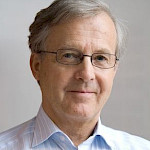
Erkki Timmerbacka is the founder and a member of the board of Kauppahalli24.fi. Kauppahalli24 is one of the largest online grocery stores in Finland. In 6 years Erkki has grown the number of items from 0 to 6000 assortment items, making Kauppahalli a viable competitor to traditional retail. Erkki also has a long track record in the Finnish logistics business.
In his presentation, Erkki will talk about what does supply chain management mean in e-commerce? How to make the customer e-shop? What does the buyer expect? What are the key elements of successful e-commerce? How to choose partners? What are the best recommendations for companies entering the e-commerce business and those already in the market? How to build a successful e-commerce business?
Toyota's production system and theory of tuned management was developed between 1945 and 1990, 25-70 years ago. Six Sigma is a theory about 30-40 years old. And although these theories were revolutionary in their time, the experience of the last 20 years suggests that they are no longer suitable for use in a 21st century organisation. There is also an urgent need to change the principles of continuous improvement of products and services so that they remain effective and relevant. Joseph Paris discusses how to modernise tuned management theories to ensure that improvement programmes do not continually fail, but continue to reach their potential today

Joseph Paris says that organisational performance is the optimal state of achievement of strategic objectives, where the business culture of an organisation is geared towards the continuous and purposeful improvement of its operations and working environment. Improving organisational performance is a purposeful activity, not an accident.
By focusing on improving the performance of companies and the working conditions of their employees, Paris helps companies analyse and formulate a strategic vision, design tactics to achieve objectives, refine and organise logistics, and execute the overall plan. Many companies and research institutions are attracted by his ability to study and solve today's problems and to highlight and anticipate tomorrow's needs. His strategic analysis, tactical knowledge and effective implementation are highly valued skills in the market. He has worked with Shell, Johnson Controls, International Paper, Lockheed Martin, John Deere, Tata/Jaguar and many others.
Building on his passion, Paris founded XONITEK in 1985, a consulting firm focusing on organizational performance issues such as business leadership, business and work culture and its changes, continuous and targeted improvement, etc. The emphasis was on designing a business environment characterised by readiness for fundamental change, innovation, sustainable results and more efficient use of human resources.
In addition, Paris is the founder of theOperational Excellence Groupon LinkedIn. It has nearly 60,000 members worldwide and aims to openly discuss ways to foster human capital development and help companies create the right environment for it. Building on the discussions in this virtual community, Paris founded the Operational Excellence Society in 2011 as a think tank for companies who want to achieve organisational excellence across the enterprise. The seven sub-organisations of the think tank have thousands of members in several cities around the world.
Paris is also a sought-after opinion leader and prolific author on organisational performance issues. In addition to his blog(www.JosephParis.me), an Operational Excellence social group on LinkedIn and the publication of the electronic monthly Operational Excellence by Design, he is a regular contributor to EuroLogistics Magazine in Poland and Lean Management Journal in the UK. He is also a member of the editorial board of this magazine.
Paris is a frequent lecturer at institutions such as the Lally School of Management at Rensselaer Polytechnic Institute (RPI), the Watson School of Engineering, and the Binghamton University School of Management, as well as the University at Albany School of Management and the University of Monterrey in Mexico. He is a member of the Board of Trustees of the Watson School of Engineering at Binghamton University and a member of the Board of Trustees of the Institute of Industrial Engineers Process Industries Division. He has previously been a member of the Association for Corporate Growth in New York and is currently a member of its Frankfurt branch. He was also an adjunct professor at Cornell University's Johnson School of Management.
He has also given many international presentations as keynote speaker, workshop leader or moderator, lecturer, panel moderator, panelist or conference chair.
The State Support Services Centre (SSC) is responsible for providing financial and human resources accounting services to public authorities. However, the vision for the future in this area is well known - new technologies will take over the accountant and human resources accounting functions within the next decade. Tarmo Leppoja, head of RTK, talks about his experience of how the organisation he leads plans its activities today, knowing the vision of the future.
The second message of Leppoja's presentation is about working with the customer. RTK's service development is not limited to the service itself, but also includes thinking with the client about the activities before and after the service. Supply chains should be developed in a similar way, where upstream and downstream activities are also considered together with the customer.
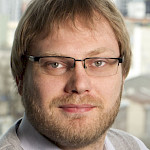
The State Support Services Centre (SSSC) provides financial, human resources and payroll services to public authorities. By centralising its services, it has managed to reduce the number of staff involved in the provision of services by a third. Customer satisfaction has been steadily increasing. In the future, the plan is to move even higher up the value chain and offer more complex HR management services.
rTK's successful service design has been led by Tarmo Leppoja since the launch of the centre in 2012. Prior to that, he spent 10 years at EAS in various positions ranging from business consultant to board member. About his current job at RTK, Tarmo says that he is most proud of the IT solutions he has developed, which have automated entire workflows in financial and personal accounting. He believes that the shared service centre model allows hidden savings to be found in the organisation of a wide range of support services.
Baltika Group is the largest brandhouse in the Baltics, owning five international fashion brands - Monton, Mosaic, Baltman, Bastion and Ivo Nikkolo. In addition to creating Estonian design for Baltika's design teams, Baltika's activities include collection production, supply chain management, logistics and wholesale, e- and retail development and management. Baltika operates through different business models in most European countries and has experimented with different business models in different markets, adapting them to the specificities of the markets and the overall economic situation. However, the challenges that operating with different business models poses for supply chain management will be discussed by Ingrid Kormik, Head of Procurement and Supply Chain, Baltika Group.

Ingrid Kormik, Head of Procurement and Supply Chain at Baltika Group, is one of Estonia's most respected supply chain experts.
ingrid has been working in various positions at Baltika since 2001, during which time she was also responsible for the supply chain management of Kaubamaja Group companies and was involved in the development of the Estonian-Finnish construction company Fennotex OY. He has been a member of the board of Prolog, the Estonian Association for Supply Chain Management, from 2012 to 2015. Today, Ingrid Kormik is responsible for the Procurement and Supply Chain unit in Baltika, which includes purchasing, production planning, logistics and quality and technical design. Ingrid is particularly valued for her broad international network, interest and passion for the industry has made her a valued expert in creating a complete supply chain solution and developing processes, IT and people.
Ericsson's Tallinn plant accounts for a tenth of Estonia's exports. But this factory not only manufactures, assembles and supplies equipment from here. A major change has taken place - it has also started to do development work. New products for the whole group are created and developed here. Tallinn is no longer just a manufacturing site, but increasingly a design and engineering site, and increasingly a site for both hardware and software development. In other words, ideas developed in Swedish and Canadian design labs are being tested and developed here. The whole production and supply chain is also being developed. Lars Ottoson, who took over as manager of the Tallinn plant in October, talks about what Ericsson's Tallinn plant does today.

lars Ottoson will take over the management of Ericsson's Tallinn plant, which accounts for a tenth of Estonia's exports, in October.
Mr Ottoson first visited the plant 15 years ago, when Elcotec's production was still based here. At that time, he was here on secondment for a few days. Now, he says, he is doing his dream job, developing the factory here every day.
Ottoson is Swedish, originally from Stockholm. He has worked for Ericsson for 20 years and has managed several factories in Sweden. Before that he worked for Electrolux for 9 years and even earlier in Germany for a few years. He holds a Master's degree in Engineering and Manufacturing from Stockholm University.
As a manager, he gives priority to rewarding employees for their professionalism. The best motivator, he says, is to set precise goals that can actually be achieved.
Ottoson is a member of the Ericsson Estonia Board together with Seth Lackman, CEO of Ericsson Estonia.
Let's sum up the day. Presentation of the Supply Chain Executive of the Year award
PROLOG reception with wine and snacks. 18:00 - ... Networking continues



